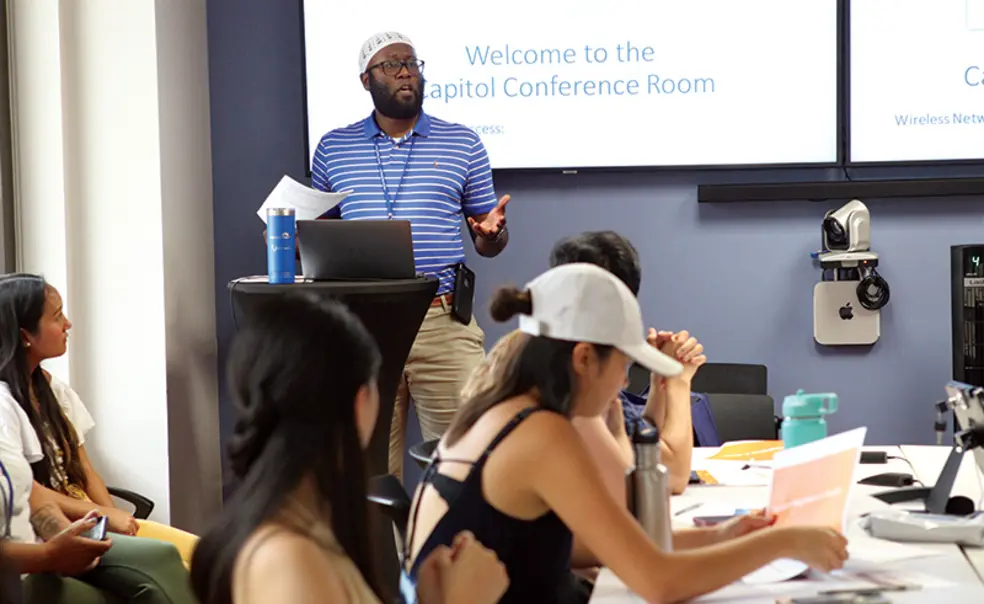At Pace Center, Service-Learning Trips Add New Paths to Nonprofits
In the midst of an intense summer heat wave, with temperatures outside rising above 90 degrees, Anchor House in Trenton was an air-conditioned paradise when a group of about 15 Princeton students and staff members from the John H. Pace Jr. ’39 Center for Civic Engagement visited in late July.
Anchor House is an oasis of a different sort for many young people in the community, annually serving up to 1,000 New Jersey youth (up to age 24) and their families by offering resources such as temporary shelter, counseling, advocacy, and life skills programming. After a tour of the youth shelter — which has a large kitchen, a rec room, a clothing closet, laundry facilities, pool and foosball tables, an electric piano, and more — Anchor House staff described their work to the Princeton contingent.
As Mereides Delgado, director of young adult services, put it, Anchor House’s ultimate goal is to help clients survive and thrive on their own.
According to Matt Lynn, assistant director of engaged pedagogy at Pace, the trip was part of the center’s “focus on place-based learning and place-based engagement, with an aim ultimately towards place-based justice,” by working with community partners and looking to those partners “as knowledge creators and experts, and an integral part of student learning at Princeton.”
Staff at the Pace Center see these excursions to nearby cities impacted by racial injustices as a way to become embedded in communities outside of Princeton and to build deeper relationships with organizations providing much-needed services to residents. Pace has offered exploration opportunities in the past through programs like Breakout Princeton (which has since been retired), but staff say these trips are part of the center’s more intentional post-pandemic emphasis on place-based learning
and justice.
Genevieve Shutt ’26, a Community Action (CA) fellow with the Pace Center this year, enjoyed connecting and conversing with Anchor House staff. “It was so inspiring to see one single organization be so in touch with the community, and have so many different connections, and be such a hub of resources for people. And I think for me, it just shows this is, I think, where we want to be.”
Later that day, over lunch with the Trenton Health Team, the group discussed the nonprofit’s work, which revolves around health and well-being for residents in greater Trenton, including funding certain out-of-pocket medical expenses, arranging postnatal home visits, and developing policy recommendations to prevent overdoses.
This summer, the Pace Center also organized trips to Philadelphia and New York City, which were focused on carceral and LGBTQIA+ themes, respectively. The outings were open to all of Pace’s 289 summer service interns, as well as other students who stuck around on campus during the summer, with about a dozen attending each trip.
Shutt and her summer roommate, Avery Williams ’26, who is also a CA fellow this year, attended all three summer trips.
The Pace Center arranged for a guided tour of Eastern State Penitentiary, a Philadelphia prison from 1829 until 1971 that is now a museum, by someone who was formerly incarcerated. Williams called it eye-opening and her favorite trip of the three.
In New York City, the Pace Center organized a walking history tour of the West Village, and then a stop at Market 57, which is home to several LGBTQIA+-owned eateries.
The visits, Williams said, deepened her knowledge of “broader social justice issues that you might have surface-level understanding of.”
“It was such a wonderful opportunity to learn in a space that wasn’t academic,” said Shutt.










No responses yet